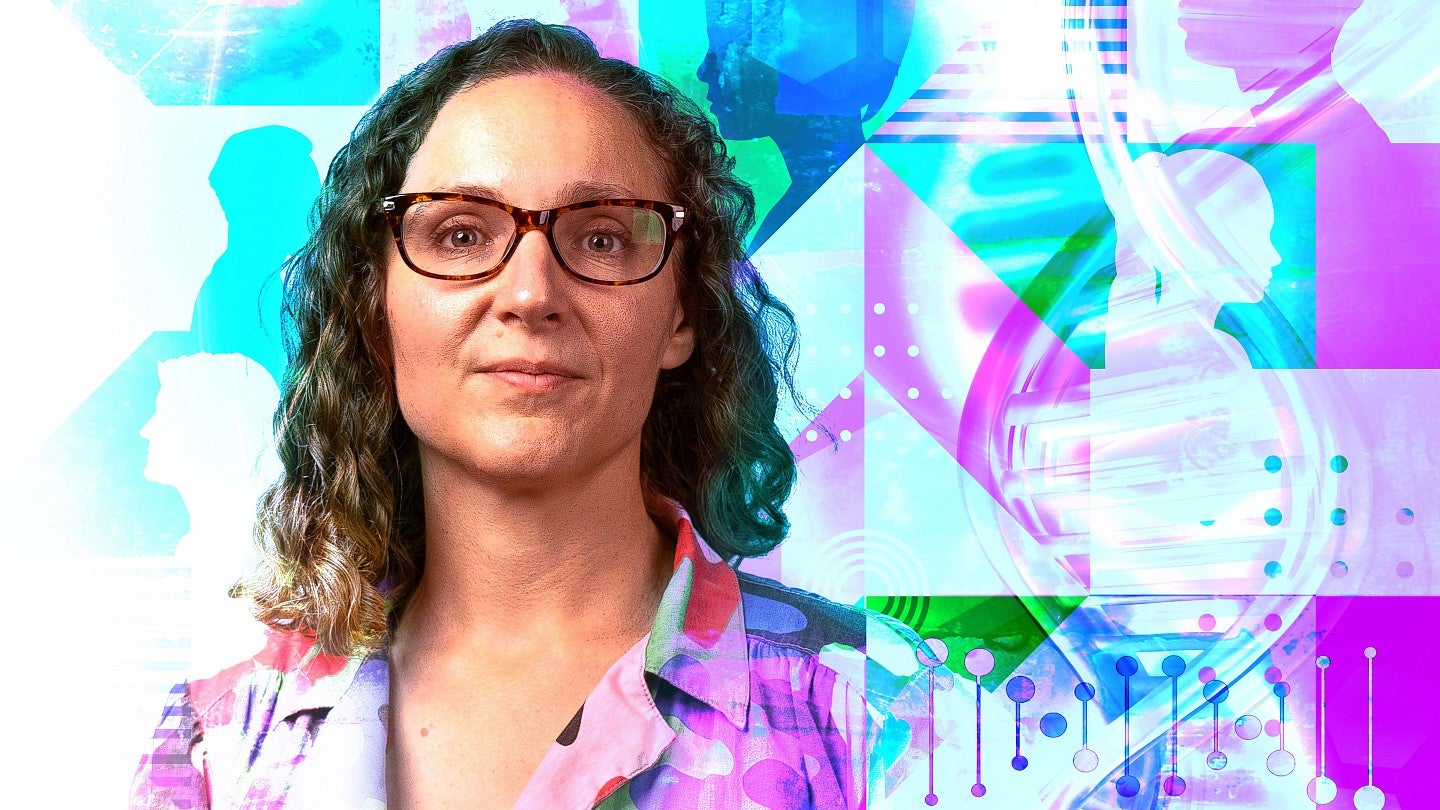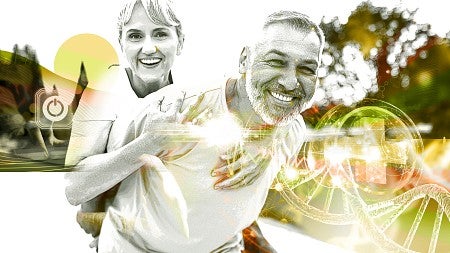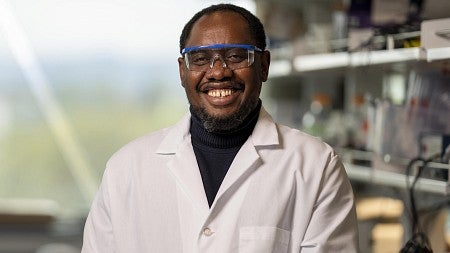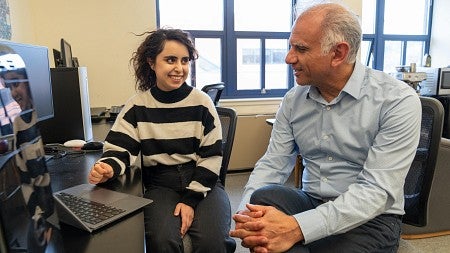
Data Detective Cracks Mysteries in Biology
In her lab and research, Rori Rohlfs uses data science skills to move toward social justice
By Tim Christie • Illustration by David Gill • October 4, 2023
3 min readThe intersection of biology and computer science is where you’ll find University of Oregon data scientist Rori Rohlfs.
She specializes in computational methods to answer biological questions, such as the reliability of forensic DNA identification and how genetic changes affect evolution. She also has used data science to examine how academics decide to distribute credit for research and who they hire for faculty jobs.
“This is a nice thing about data science: you can answer all kinds of questions,” she says.
Rohlfs, an associate professor of data science, is the first tenure-track faculty member in the UO’s Department of Data Science, within the new School of Computer and Data Sciences, which opened this fall in the College of Arts and Sciences.
“It’s an honor,” she says. “I’m thrilled to be at the ground floor as we start to build this new department and this new school. It’s a tremendous opportunity to build a department that is diverse, that is impactful, and that reaches across campus for interdisciplinary collaborations.”
Finding the intersection
Growing up in northern Virginia, Rohlfs took computer science classes in high school and found it “both fun and easy.” But as she pursued a bachelor’s degree at Carnegie Mellon University, she realized the traditional career paths in that field, such as becoming a software engineer, did not appeal to her. So, she pursued a double major in biology and computer science.
From that confluence, Rohlfs and her lab team have developed different branches of research. Among them is analyzing the reliability of forensic DNA identification, which includes police identification of criminal suspects through biological samples, human remains identification, and missing persons work.
“Often there’s a real lack of understanding about the accuracy and the variation of the accuracy with regard to human genetic variation,” she says. “In my lab, we try to quantify how often mistakes could be made using those technologies.”
For example, in a paper currently under review, Rohlfs’s lab quantifies the accuracy of DNA mixture analysis, which occurs when a biological sample contains DNA from multiple individuals. They found accuracy varies depending on the genetic background of the contributors to the mixture, and to a lesser extent, on assumptions about the genetic background of the contributors.
Examining evidence behind assumptions
Rohlfs is also interested in how data science can inform social justice.
“There’s no avoiding social context when we’re doing science,” she says. “Our social context is evident in the questions we ask and our approaches to those questions, who we include on our scientific teams, what assumptions we make, and what assumptions we examine.”
For example, human genetics is a field of study that has roots in the eugenics movement, the erroneous and immoral theory rooted in scientific racism which posited that humankind can be improved through selective breeding of populations.
“Eugenics relies on the idea that genetics determine everything about somebody, which was a very popular idea in science as well,” Rohlfs says. “It took decades for scientists to accept the plentiful evidence that mutations, causing new genetic variation, rarely have a big impact on traits. This means that we have a lot of neutral genetic variation in our genomes.
“If you don’t examine the assumption you’re working with, then you could just go on thinking every genetic variant is crucially important to natural selection, and you fail to see how the evolutionary process actually works, which is not nearly as deterministic as that. The vast majority of mutations don’t dramatically impact individuals.”
Making a new home
Rohlfs comes to Eugene and the UO from San Francisco State University, where she was an associate professor of biology. Getting acclimated, she has enjoyed playing with her partner and their two children in the Willamette River, going on bike rides, and attending community events such as the Eugene Pride festival in August.
“It was so fun, so sweet,” Rohlfs says. “I love a daytime drag show and the particular creative, queer energy that comes from that. I appreciate it being accessible to queer parents and kids.”
Tim Christie is a communications generalist in the Office of the Provost.




